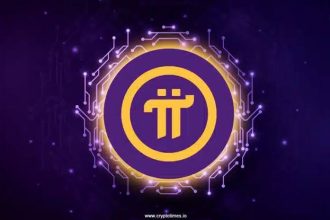The Monetary Authority of Singapore (MAS) has introduced stringent new regulations that are set to reshape the cryptocurrency landscape in Singapore. These regulations require cryptocurrency platforms to hold client funds in trusts and propose a ban on lending and staking activities by retail investors. While aimed at enhancing investor protection, these measures bring a host of challenges for cryptocurrency projects like Pi Network.
Negative Impact on the Pi Network Project
1. Compliance Burden: The new requirement to hold client funds in trusts represents a significant compliance challenge for Pi Network. The complexity and resource intensity needed to establish and maintain trust structures could hinder operational efficiency and agility.
2. Limitations on User Participation: The ban on lending and staking activities could severely restrict user engagement in Pi Network. These activities are vital for incentivizing participation and fostering network growth, and their restriction could impact Pi Network’s ability to attract and retain active users.
3. Regulatory Uncertainty: The introduction of these new rules creates uncertainty for Pi Network, complicating its adaptation to the evolving regulatory framework. This uncertainty could delay the project’s development, deter potential investors, and complicate partnerships.
4. Impact on Innovation: Restricting lending and staking activities may stifle innovation within Pi Network. These activities drive the development of new features and exploration of novel use cases, and limiting them could slow progress, especially compared to projects in more permissive environments.
5. Global Perception: The perception of Pi Network could be negatively impacted globally due to these regulatory challenges. Potential users, investors, and partners may become apprehensive about engaging with a project facing significant regulatory hurdles in a major financial hub like Singapore.
Reasons for the Necessity of the Regulatory Move
1. Investor Protection: At the heart of these regulations is the goal of enhancing investor protection by securing client funds through trusts, thus safeguarding against misappropriation or mishandling.
2. Mitigating Risks: The ban on lending and staking by retail investors is intended to mitigate the high risks associated with these investment activities, protecting less experienced investors from potential financial losses or scams.
3. Strengthening Market Integrity: These regulations aim to foster a transparent and trustworthy market, reducing the likelihood of fraudulent activities and enhancing overall market integrity.
4. Aligning with International Standards: Singapore’s regulations align with global efforts to regulate the cryptocurrency market, showcasing its commitment to international best practices and standards.
5. Long-Term Sustainability: The MAS is focused on the long-term sustainability and stability of the cryptocurrency market, enhancing investor confidence and supporting the growth of responsible and legitimate projects like Pi Network.
While the new regulations introduced by MAS present significant challenges for the Pi Network, they also emphasize the necessity of regulatory oversight in the evolving cryptocurrency landscape. For Pi Network to thrive, it will need to navigate these challenges innovatively, ensuring compliance while continuing to engage and expand its user base. Adapting effectively to these changes is crucial for the project’s success in Singapore and its expansion on the global stage.
Strategies for Pi Network to Navigate New Regulatory Challenges
To successfully adapt to the new regulatory environment in Singapore, Pi Network will need to employ strategic measures that ensure compliance while maintaining its project’s growth and innovation. Here are several strategies that Pi Network could consider:
1. Strengthen Compliance Framework: Pi Network should invest in strengthening its compliance framework to meet the new requirements. This might involve hiring legal and regulatory experts, enhancing internal controls, and developing systems to ensure client funds are managed in trust as mandated.
2. Engage with Regulators: Continuous engagement with MAS and other regulatory bodies will be critical. By actively participating in regulatory discussions and providing feedback on proposed rules, Pi Network can help shape a regulatory landscape that supports innovation while ensuring investor protection.
3. Diversify Offerings: To mitigate the impact of restrictions on lending and staking, Pi Network could diversify its offerings. Exploring other value-creating activities that do not conflict with the new regulations can help sustain user interest and participation.
4. Education and Transparency: Educating users about the new regulatory environment and what it means for their investments and participation in Pi Network is essential. Transparent communication can help manage user expectations and maintain trust.
5. Explore New Markets: Expanding operations to other jurisdictions with more favorable regulatory environments could also be a viable strategy. This would not only mitigate risks associated with regulatory changes in Singapore but also broaden the project’s global footprint.
6. Leverage Technology Innovations: Embracing new technological innovations can help Pi Network adapt to regulatory changes without sacrificing operational efficiency. For example, blockchain technology could be used to enhance transparency and automate compliance processes.
Conclusion
The recent regulatory changes introduced by MAS pose significant challenges for Pi Network, impacting everything from compliance burdens to user engagement and global perception. However, these regulations are also necessary for ensuring a safer and more stable cryptocurrency market in Singapore.
By implementing strategic adaptations, engaging with regulatory bodies, and innovating within the confines of the new rules, Pi Network can navigate these challenges. The ability to adapt and evolve in response to regulatory landscapes will be crucial for Pi Network’s continued success and growth, not only in Singapore but in the global market. This proactive and strategic approach could set a precedent for other cryptocurrency projects facing similar regulatory environments worldwide. Read Similar Story












Satoshi – Global Free Airdrop
Satoshi is the world’s top one free airdrop platform,we will have various outstanding projects and tens of million crypto world residents.
https://www.btcs.love/invite/6yygn
I am sending you 1π! Pi is a new digital currency developed by Stanford PhDs, with over 55 million members worldwide. To claim your Pi, follow this link https://minepi.com/daiv101 and use my username (daiv101) as your invitation code.
I am sending you 1π! Pi is a new digital currency developed by Stanford PhDs, with over 55 million members worldwide. To claim your Pi, follow this link https://minepi.com/dreamtreats and use my username (dreamtreats) as your invitation code.
Join with me on PHI Network. Use my referral code: DAOKORO
https://play.google.com/store/apps/details?id=phiex.io.app